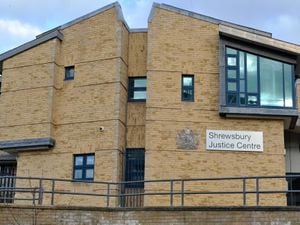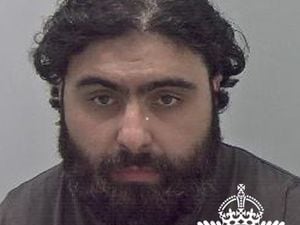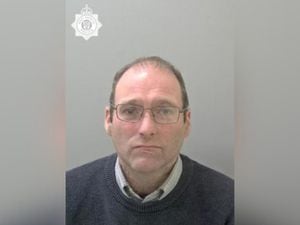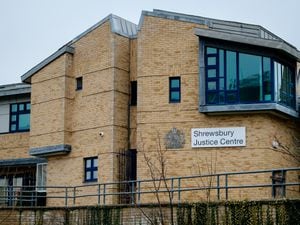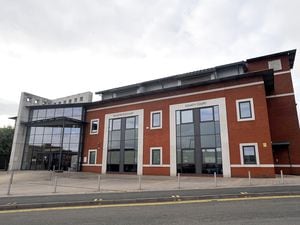Archie Spriggs: Agencies 'missed opportunities' before seven-year-old's murder
Agencies working with the family of a Shropshire schoolboy murdered by his mother missed opportunities to fully assess the impact of his parents' bitter relationship on him, a review found.
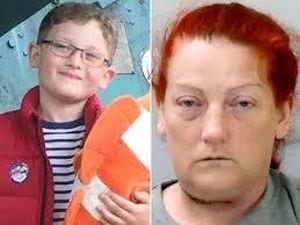
Lesley Speed was jailed for life for smothering Archie Spriggs, aged seven, on the day that she and his father were due in family court for custody proceedings.
Shropshire Council’s social services, education and health services were among agencies that had dealings with the family prior to his murder on September 21 last year at their home in Wall under Heywood, near Church Stretton.
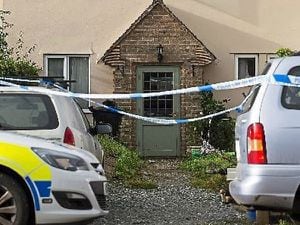
Now a serious case review carried out by Shropshire Safeguarding Children’s Board has found that there was "scepticism" and an "unconscious bias" among professionals dealing with complaints about each other by Archie's parents, who had separated shortly after he was born.
The inquiry also found that there was "a lack of a clarity" regarding how referrals are made to the children's social care unit.
See also:
Key findings included that children's services were unaware of Speed's mental health needs until after Archie's death and that on three separate occasions, referrals made his father Matthew Spriggs, his school and his GP "should have resulted in a service being provided by Children’s Social Care".
The review covers the period January 2014 to September 2017 when the relevant agencies had contact with Archie.
Terrible
Independent chairman of Shropshire Safeguarding Children’s Board, Ivan Powell said there had been "missed opportunities" to assess the impact of the family's situation on the child.
“This is a tragic and terrible case and it is absolutely right that we have conducted this review to better understand the way that the partner agencies worked together and individually, and to determine what lessons can be learned," he said.
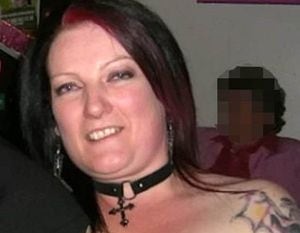
"The board has already taken steps to ensure that all of the recommendations are pursued robustly to change and improve the future experience for Shropshire’s children and their families.
"I wish to acknowledge the strength of Archie’s family who fully contributed to the review at a time of such a terrible loss for them."
The review was commissioned by the board to see what lessons should be learned from the youngster’s death after Speed, 45, was jailed for a minimum of 18 years earlier this year at Birmingham Crown Court for murdering Archie.
Recommendations
Among its main recommendations is for improvements in how the safeguarding concerns for children caught up in "ongoing disputes" are to be handled in future.
These include a change of the referral route for agencies which will be required to make consistent use of written forms and this new arrangement will be introduced next month.
It also recommends staff training to include the impact of private law proceedings; the impact on children’s emotional wellbeing where separated parents make allegations about the welfare of their children; barriers to working with fathers; and a system to enable professionals to provide a whole family focus.
The report, which refers to Archie as 'E', states: "A range of professionals reported concerns about the safety and wellbeing of E from January 2014 up to two days before his death.
"The review has identified a lack of clarity about the safeguarding referral pathway across the professional network.
"When a referrer calls Shropshire Council Children’s Services, call handlers based in the First Point of Contact (FPOC) receive the call.
"Previously, including at the time of E’s death, referrals to CAMHS were made via FPOC with one of two CAMHS nurses then deciding as to whether to accept the referral.
"These referrals were recorded on Children’s Social Care records rather than in CAMHS records.
"In December 2017, a separate front – door was created by the responsible health trust to receive CAMHS referrals and from this date, referrals to CAMHS have been recorded by the responsible health trust thereby creating a more robust system of governance for referrals to CAMHS than was in place when the GP made a referral to CAMHS in respect of E."
Trial
Archie's father Matthew Spriggs claims authorities dismissed his concerns about Mrs Speed’s behaviour and as a result missed opportunities to prevent the killing and had failed his son.
Speed was convicted of murdering her son following a trial at Birmingham Crown Court, which heard that she had suffered from a depressive illness for several years which led to a “distorted and negative” pattern of thinking.
She denied murdering him and claimed he committed suicide, but the jury did not believe her account and she was jailed for life and must serve a minimum of 18 years.
The parents were embroiled in a bitter custody battle and she failed to arrive at a family court hearing on the day he was found dead at their home near Church Stretton and where she was found with self-inflicted injuries.
Both made complaints separately to various authorities about each other emotionally abusing him, and since May 2017 Mr Spriggs could only see his son at a social services contact centre following a row over access.
The report's author safeguarding consultant Liz Murphy said: “It is important to stress that the system challenges identified in this or any serious case review, can have no responsibility for the perpetrator’s motivation or their actions.
"Responsibility for the death of any individual rests firmly with the perpetrator.”

